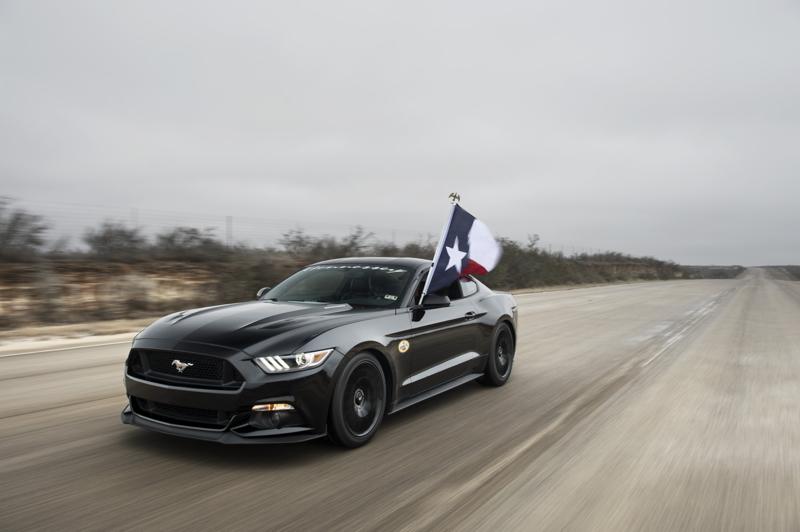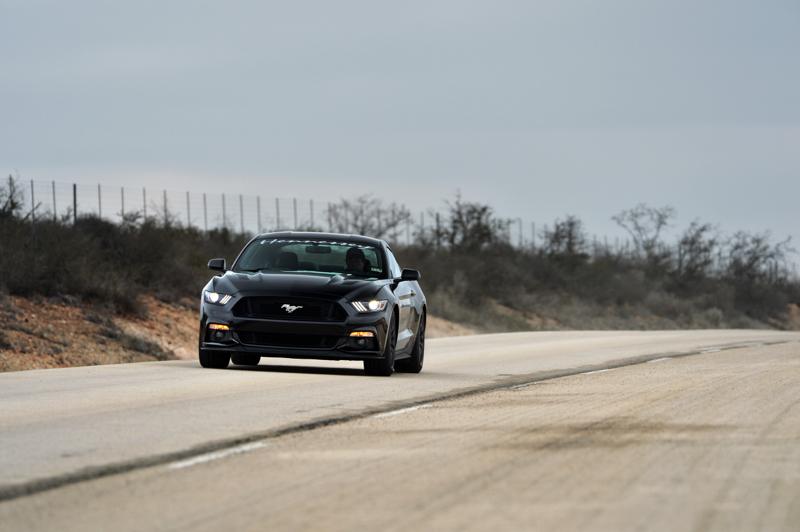Few drivers will ever explore the true limits of their cars, and that’s probably a good thing. John Hennessey specializes in doing just that.
We previewed the famed tuner’s HPE700 Mustang last year, which bolts a 2.9-liter supercharger system (among other things) to the 2015 Ford Mustang GT. With the Hennessey badge, Ford’s 5.0-liter ‘Coyote’ V8 makes 717 horsepower and 632 pound-feet of torque at the crank, which allows for a 0 to 60 mph time of 3.6 seconds and quarter-mile figure of 11.2 seconds.
A new video of the car has been posted by Mr. Hennessey himself, and it shows his personal HPE700 performing a top speed run at the Continental Tires Proving Grounds in Uvalde, Texas.
On the 8.5-mile course, Hennessey was able to hit a GPS-verified 195.2 mph before the rev limiter kicked in. The car sounds like a screaming jet fighter as it flies around the test track, and you can skip to 3:10 in the video for proof. The run starts at 2:20.
“Cruising through the final turn I was trying to maintain 120-130 mph while building some speed as I neared the straight,” Hennessey recounted. “When I hit the straight, I wanted to be around 140 mph and then let all of the Mustang’s horsepower run wide open. The car pulled very strong and just kept pulling. I hit a pretty nasty bump around 170 mph and kept my foot on the gas. Then I hit the rev limiter at just over 195 mph according to the Racelogic VBox display.”
In October, Hennessey stated only 500 examples of the HPE700 Mustang would be built for the 2015 model year. The package starts at $59,500, which includes the $32,300 base MSRP of a Mustang GT. Options like carbon-fiber bodywork, 20-inch Hennessey wheels, and a Brembo brake package are also available.





